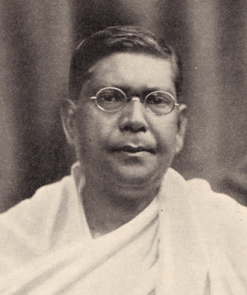A Quote by Walt Whitman
Well, every man has a religion; has something in heaven or earth which he will give up everything else for - something which absorbs him - which may be regarded by others as being useless - yet it is his dream, it is his lodestar, it is his master. That, whatever it is, seized upon me, made me its servant, slave - induced me to set aside the other ambitions a trail of glory in the heavens, which I followed, followed with a full heart. ...When once I am convinced, I never let go.
Quote Topics
Related Quotes
The master in the art of living makes little distinction between his work and his play, his labor and his leisure, his mind and his body, his information and his recreation, his love and his religion. He hardly knows which is which. He simply pursues his vision of excellence at whatever he does, leaving others to decide whether he is working or playing. To him he's always doing both.
Amid the worry of a self- condemnatory soliloquy, his demeanour seemed grave, perhaps cold, both to me and his mother. And yet there was no bad feeling, no malice, no rancour, no littleness in his countenance, beautiful with a man's best beauty, even in its depression. When I placed his chair at the table, which I hastened to do, anticipating the servant, and when I handed him his tea, which I did with trembling care, he said: "Thank you, Lucy," in as kindly a tone of his full pleasant voice as ever my ear welcomed.
Some would define a servant like this: 'A servant is one who finds out what his master wants him to do, and then he does it.' The human concept of a servant is that a servant goes to the master and says, 'Master, what do you want me to do?' The master tells him, and the servant goes off BY HIMSELF and does it. That is not the biblical concept of a servant of God. Being a servant of God is different from being a servant of a human master. A servant of a human master works FOR his master. God, however, works THROUGH His servants.
Ambitions for self may be quite modest. . . . Ambitions for God, however, if they are to be worthy, can never be modest. There is something inherently inappropriate about cherishing small ambitions for God. How can we ever be content that he should acquire just a little more honour in the world? No. Once we are clear that God is King, then we long to see him crowned with glory and honour, and accorded his true place, which is the supreme place. We become ambitious for the spread of his kingdom and righteousness everywhere.
Led by long years to my last hours, too late, O world, I know your joys for what they are. You promise a peace which is not yours to give and the repose that dies before it is born. The years of fear and shame to which Heaven now set a term, renew nothing in me but the old sweet error in which, living overlong a man kills his soul with no gain to his body. I say and I know having put it to the proof, that he has the better part in Heaven whose death falls nearest his birth.
[About Swami Vivekanada:] I am not saying that the message of the Swami was the final word in our nationalism... But it was tremendous - something with an undying glory of its own. If you read his books, if you read his lectures, you are struck at once with his love of humanity, his patriotism, not abstract patriotism which came to us from Europe but of different nature altogether a more living thing, something which we feel within ourselves when we read his writings.
The world cannot bury Christ. The earth is not deep enough for His tomb, the clouds are not wide enough for His winding-sheet; He ascends into the heavens, but the heavens cannot contain Him. He still lives--in the church which burns unconsumed with His love; in the truth that reflects His image; in the hearts which burn as He talks with them by the way.
Every man, however hopeless his pretensions may appear, has some project by which he hopes to rise to reputation; some art by which he imagines that the attention of the world will be attracted; some quality, good or bad, which discriminates him from the common herd of mortals, and by which others may be persuaded to love, or compelled to fear him.
I am what I am, and what I am is always due to him; whatever in me or in my words is good and true and eternal came to me from his mouth, his heart, his soul. Sri Ramakrishna is the spring of this phase of the earth's religious life, of its impulses and activities. If I can show the world one glimpse of my Master, I shall not have lived in vain.
I think men of science as well as other men need to learn from Christ, and I think Christians whose minds are scientific are bound to study science that their view of the glory of God may be as extensive as their being is capable. But I think that the results which each man arrives at in his attempts to harmonize his science with his Christianity ought not to be regarded as having any significance except to the man himself, and to him only for a time, and should not receive the stamp of a society.
To be successful, a man must exert an effective influence upon his brothers and upon his associates, and the degree in which he accomplishes this depends on the personality of the man. The incandescence of which he is capable. The flame of fire that burns inside of him. The magnetism which draws the heart of other men to him.







































